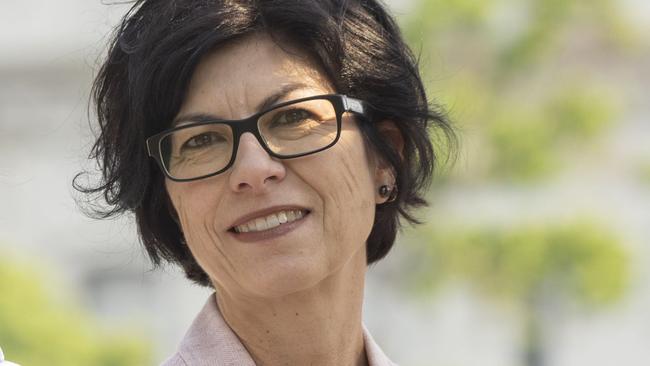Bushfires: Agencies report post-natural disaster spike in domestic violence incidents
Domestic violence agencies are reporting a spike in assaults occurring in the regions hit hardest by the bushfires.

Domestic violence agencies are reporting a spike in assaults occurring in the regions hit hardest by the bushfires, with the increase in abuse almost certainly linked to the crisis.
Joanne Yates, chief executive of Domestic Violence NSW, said reports had emerged of a noticeable “uptick” in violent incidents, and further reporting was expected once communities extinguished the fires and moved into a recovery phase.
Ms Yates said there had been cases of women who had taken out apprehended domestic violence orders against their partners or former partners who were being forced to share space with them in evacuation centres. This alone had led to cases of intimidation and, in some instances, physical abuse.
Other victims had been forced to reunite with abusive partners to obtain food, clothing or access to a car to evacuate from an affected region. In some cases these encounters acted as the precursors to another assault.
“They need to reunite with their partner for their safety to be guaranteed,” Ms Yates said.
“Domestic violence is not a one-off incident. It’s a pattern of behaviour, and under stress those patterns can intensify.”
The NSW Attorney-General’s Department has already received anecdotal evidence of violence occurring in the southeast of the state, where efforts to control the fires are continuing. In areas where recovery efforts have begun, such as in Wagga Wagga, where fires raged in the surrounding region during October and November, reporting is more formalised and has emerged through local health services and shelters that have returned to full operations. Such lag periods are common while a crisis is still in place, Ms Yates said.
NSW Attorney-General Mark Speakman, who is also the Minister for the Prevention of Domestic Violence, said there was a demonstrable link between natural disasters and violence that occurs in the home. “We know that when disasters like this strike, it can increase violence,” Mr Speakman said. “My message to those who perpetuate this terrible scourge is that it’s only a matter of time before you’ll be caught and put before the courts. My message to victims and survivors is that this is not your fault.”
Studies conducted in the aftermath of Hurricane Katrina in the US, the Black Saturday bushfires in Victoria, earthquakes in New Zealand and other calamities have all told a similar tale: agencies need to prepare themselves for a sharp rise in domestic assault cases caused by the stress of the crisis.
Ms Yates said for some victims the abuse was long-standing; for other women, it would be sudden and unprecedented, and almost certainly linked to the trauma, tension and loss caused by the fires: “Deep trauma and deep stress heighten those tensions.”
1800 RESPECT 1800 737 732 is a confidential information, counselling and support service




To join the conversation, please log in. Don't have an account? Register
Join the conversation, you are commenting as Logout